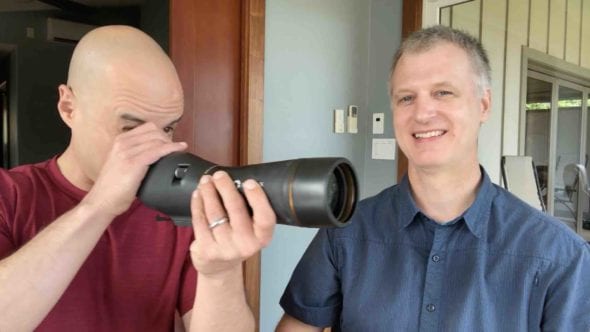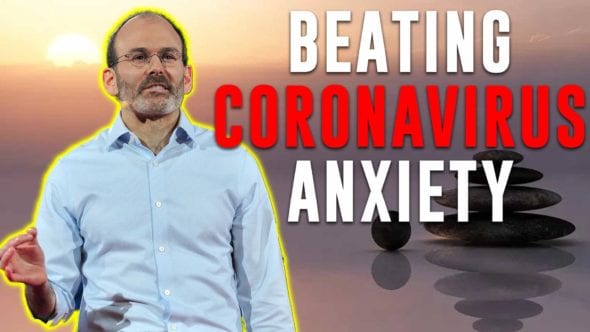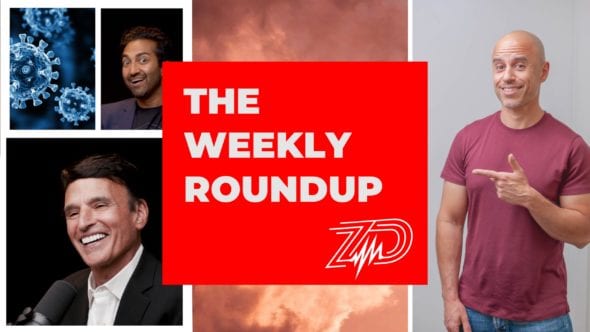Looking past the politics to the state of the science on chloroquine and hydroxychloroquine in treating COVID-19.
ADDENDUM 6/5/2020: OH SNAP! This study got retracted by the Lancet! Check out our followup video.
Transcript Below!
– Hey, everybody, it’s Dr. Z. Welcome to the show. Okay, today I wanna talk about hydroxychloroquine, chloroquine, azithromycin. These therapeutics that have been all over the press, whether it’s a politician talking about it, whether it’s a scientist talking about it, whether it’s your neighbor telling you, “Hey, have you gotten any hydroxychloroquine? “Because, you know, people say it work. “Some say it’s effective.” well, let’s talk about this and let’s make it as simple as possible. There’ll be no cursey words, so you can share this with your friends, all right? This time, this time. Next time, all the F-bombs.
Okay, so here’s the thing. Hydroxychloroquine, chloroquine, these are a class of very inexpensive drugs that have been used for years in malaria prophylaxis, and hydroxychloroquine which has the trade name Plaquenil is often used in autoimmune conditions like lupus. And so we have a long history, a long track record of using these medications at particular doses for particular diseases. Now, when the COVID-19 thing happened, what people started to do is these in vitro, meaning in a test tube or in an artificial non-body situation, looking at cells and seeing how they’re infected with the coronavirus, the SARS-2 coronavirus.
What they found was that chloroquine, hydroxychloroquine, actually inhibited viral replication in these cells, all right? To keep it very simple. So they said, “Oh, maybe this is a thing.” Because we’ve used these medications to prevent the malaria parasite from infecting people, it’s used as prophylaxis, prevention from malaria, it’s easy, it’s cheap, it’s effective, and there was other sort of theorizing that it might work in combination with an antibiotic called azithromycin, which is a relative of erythromycin, a newer version of it, to help treat COVID-19.
So again, so many things, actually in vitro, not in the body, actually do work quite well, but then when you translate them into humans, it turns out humans are vastly more complex than a test tube or a mouse, or an animal or even sometimes a chimpanzee, advanced animal studies, and it turns out it doesn’t pan out. Well, because of all the press and everything and all the hype around this medication, the Lancet did a review where they looked at, I think, 600 odd hospitals and starting in December all the way through April, anybody who got within 48 hours of admission to a hospital, hydroxychloroquine or chloroquine, with or without combination with azithromycin, and they follow them and saw retrospectively, in other words, this has already happened, we’re gonna go back and look at this data what ended up happening to their outcomes.
And they compared it to a control group, a group that did not get that therapy, who didn’t get that stuff. And patients who got the medication after 48 hours or they were taking the medication remdesivir as part of a trial or compassionate use, they were all excluded from the trial. So you couldn’t look at those guys. And what they found was no benefit on outcomes in terms of mortality, and actually more danger of having a bad outcome in terms of, especially, cardiac arrhythmias. What that means, ventricular arrhythmias in particular, what that means is the ventricle’s the big part of your heart that squeezes the blood whether to the lungs or to the body. Right ventricle to the lungs, left ventricle to the body. A ventricular arrhythmia is where the normal electrical pattern that triggers the contraction of those ventricle goes haywire. So when you see on TV when someone’s like, “He’s in V-fib!” V-fib is a ventricular arrhythmia that could be fatal unless you treat it often with electrical cardio version of shock paddles that you see on TV that work a 100% of time on TV, but almost never in real life. But that’s another talk.
So ventricular arrhythmias were increased in the group that got hydroxychloroquine or chloroquine. You have to understand a couple things about these drugs. They are known to actually cause these arrhythmias. So this is something known about these drugs already, particularly, at higher doses. And it turns out the doses for COVID-19 therapy that they are giving are roughly, can be double what you give for someone with lupus for hydroxychloroquine, say. And so at these higher doses, what happens is there’s something called QTc prolongation. That’s a fancy way of saying, you know those little EKGs where you see these little patterns? The Q wave is a part of that pattern. And then you have the R and the S and the T wave. Prolongation of the Q to T interval means that it’s kind of spread out and what that can lead to is one wave form stomping on another wave form and triggering, and I’m making this overly simple, triggering a flood of electrical storm that we call either ventricular fibrillation or torsades de pointes or other arrhythmias in the ventricle. So very, very dangerous.
That’s why they recommend cardiac monitoring when you’re on higher doses of these medications. Now, to add insult to injury, azithromycin is known to do this as well. To a lesser degree than its predecessor erythromycin, but it still can do this. Now you combine those two drugs and you see why just giving this to everybody without evidence that it’s actually helping, that there’s risk-benefit analysis, where there’s like, “Oh, there’s benefit.” There’s a risk of having a heart event that could kill you but the benefit’s high. Without that evidence, it makes no sense to take these drugs, alone or in combination, unless you’re part of a clinical trial that’s looking to answer these questions in a prospective, meaning looking forward, blinded, placebo, controlled way, which is our gold standard testing. Unless you’re part of one of those trials, and you’re hospitalized with COVID-19, there’s no good reason to give you these drugs.
And plenty of good reason not to, because the harm may be greater than any perceived benefit, which hasn’t been documented yet. Remember that trials that suggested they may be helpful were in vitro. There was a small human trial, but it was so poorly done, and so small, and so confounded by other therapies that these patients were getting, that it’s almost useless in terms of guiding us. So that’s part of the problem.
Now, what about preventing coronavirus infection? Can chloroquine or hydroxychloroquine do that? Well, we just don’t know because the trials haven’t been completed. It turns out Duke is doing one such trial, part of the HERO registry, and they’re gonna enroll people looking at hydroxychloroquine prophylaxis, giving it like we give malaria prophylaxis, to healthcare workers. Because they are at the highest risk of getting sick and then studying their outcomes and seeing if it actually has some benefit. Now, that’s a good prospective randomized, controlled trial where we can get some real answers.
Now, I think the punch line on this is, all of this has been very politicized. So whatever part of the political spectrum you’re on, you’re gonna feel really strongly about this, which is exactly, it’s exactly fine. You can feel however you want. But I want you then to step back and use critical thinking, looking at the literature, not cherry-picking studies to back what you believe. So for one second here, let’s criticize the Lancet study that looked at all these data. It was retrospective, it was confounded by the fact that the sickest patients tended to get hydroxychloroquine. So there was an association there with a higher death rate because those patients may already have been sicker. That’s why the doctors put them on this drug as a sort of a Hail Mary, last ditch effort.
So that trial, even though the Lancet trial has got its own problems that are significant. So the way you answer this is you do a prospective, randomized, blinded, meaning we don’t know what intervention you’re getting so it doesn’t bias the trial participants, and then you’ll have an answer. But you gotta understand that you need to strip away the emotion and the politics, which is weird. Why do we have that? Watch my other videos on that.
And actually look at the data use some critical thinking and understand that this is not the cure all that whether it’s the media or politicians are pitching. It needs to go through a scientific process and that goes for every single part of this. Just because we’re in an emergency situation, well, we can expedite the research, but you don’t throw away everything we’ve learned about evidence, critical thinking, and how to look at data in terms of the therapeutics for this thing. All right, guys? I hope this was helpful. It got a little long, but sometimes I get into this stuff. All right, I love you, share this video. If you wanna become a supporter, that’s great. Leave your own comments about what you think and let’s watch this data emerge over time. All right, I love you, we out.
Category
- The ZDoggMD Show (818)
- Featured Videos (189)
- Doc Vader (142)
- Against Medical Advice (128)
- Medical Humor (95)
- Public Service Announcements (87)
- Music Parodies (74)
- Nurses (59)
- Meditation (46)
- The VPZD Show (38)
- ZVlogg (36)
- ZTalks (28)
- ZBlogg (24)








